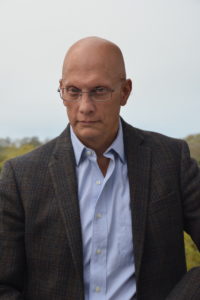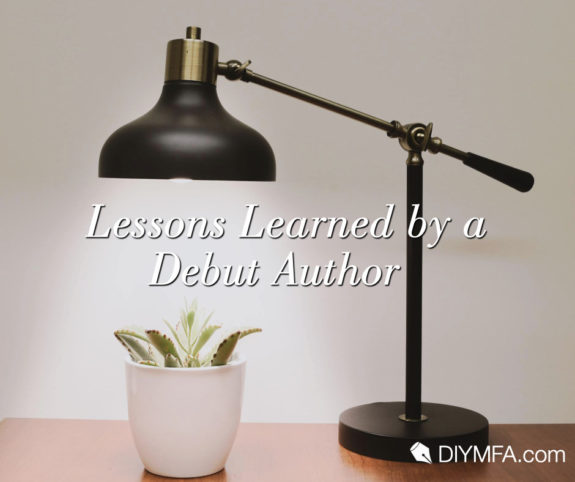Do you want me to tell you a story?
Is there a better question to stoke the imagination and create anticipation? The promise of a story has always electrified me. I’ve wanted to become a writer since my parents read me bedtime stories filled with fantasy and adventure. I would often sneak out of bed and stay up late scribbling ideas in a notebook. The clacking of a keyboard still heightens my senses and warms me like my parents’ embrace.
After college, I worked as a reporter before taking a twenty-five-year detour into law enforcement, but that’s another story. I retired in 2017 to work as a novelist, and today, at age fifty-five, I published my debut novel—Furious: Sailing into Terror. Better late than never.
I’ve made many mistakes over the past four years of full-time writing, and I want to share the lessons I’ve learned. There’s a big difference between having a story idea and getting published.
Lesson 1: Writers Write
I developed a daily writing practice, which allowed my subconscious to stay engaged with my characters and plot. I jotted notes on my iPhone when I was away from my computer, and I memorialized ideas on a waterproof pad in the shower. Seriously, steam solves plot problems. I’ve written over 600,000 words since retirement because I silenced my inner critic during first drafts. I can fix bad writing, but I can’t edit what I haven’t written. I don’t make excuses—I write.
Lesson 2: Read Your Genre
I pen thrillers, so I read the genre to understand reader expectations. Classics are great, but I also consumed contemporary bestsellers, because writing styles change and what worked fifty years ago will not hold a reader’s attention today. I understand conventions and avoid tropes, but I also break rules and try new things.
Lesson 3: Learn the Craft of Novel-Writing
Despite having worked as a journalist, I still needed to learn how to write fiction. I studied dozens of craft books to understand structure, style, tone, pacing, setting, character, conflict, dialogue, description, etc.
My top-ten favorite books about writing are:
- The First Five Pages by Noah Lukeman
- Writing the Breakout Novel by Donald Maass
- Consider This by Chuck Palahniuk
- Save The Cat Writes a Novel, by Jessica Brody
- The Writer’s Journey, by Christopher Vogler
- Story, by Robert McKee
- Writing the Blockbuster Novel, by Albert Zuckerman
- The Writing Life, by Annie Dillard
- On Writing, by Stephen King
- The Elements of Narrative Nonfiction, by Peter Rubie
Lesson 4: Edit Multiple Times
After completing my first draft, I conducted a structural edit for plot arc, clarity, missing scenes, and extraneous characters. I followed that with a character arc edit, making sure I included characters’ wants and needs. Next came the copy edit where I fixed bad dialogue, lengthy backstory, passive voice, head hopping, weak verbs, excessive adjectives, and a myriad of other amateur writing mistakes. Last, I proofread for spelling, grammar, and consistency, then read a paper copy out loud, because mistakes jump off white paper. I edited my manuscript at least thirty times.
Lesson 5: Interact with the Writing Community
I swapped opening chapters with my critique group partners and sent my completed manuscript to beta readers. Receiving objective criticism was crucial and critiquing other writer’s work helped me spot similar problems in my own. I joined writers’ associations and attended several conferences. DIY MFA and other writing podcasts became a staple of my daily walks. Interacting with other writers, editors, and agents has been an important part of my education.
After I polished my manuscript, I sought a literary agent to reach imprints in the big-five publishing houses. In 2017, I had signed with a big-name literary agency for a nonfiction book idea, but I acted too quickly and had to fire my agent a year later. I hired another agent for my nonfiction, but still needed representation for my novel. This time, I researched agents on Publishers Marketplace, Duotrope, and Manuscript Wish List, then logged my queries on a spreadsheet. I received one response in five minutes and others took nine months to get back to me. Some never did.
Lesson 6: Querying Is an Art Form
My three-paragraph query letter started with a one-sentence hook, and included the title, genre, and word count. The second paragraph was a synopsis that avoided spoilers, much like my back-jacket copy. The last paragraph summarized my platform, professional accomplishments, writing credits, and awards. I was careful to follow each agency’s guidelines, which asked for things like a synopsis, pitch, comparable titles, target readers, and similar authors. One agent wanted to know which Hogwarts House I preferred.
When I could not find the right fit for my thriller, I submitted the manuscript to my favorite independent publishing houses and received several offers. I selected Black Rose Writing, sans agent, and used an Author’s Guild attorney to vet the contract. Had I not found a publisher, I would have considered self-publishing as a last resort. It’s hard to make a novel stand out among the two million books authors self-publish each year.
After three years of studying the craft and writing until my fingers ached, I finally sold a book. Mission accomplished, right?
Wrong.
Lesson 7: Just the Beginning
Selling my manuscript to a publisher ended a long query process but began a new set of challenges. I had to learn how to interact with my publisher during editing, cover design, audio creation, and marketing. I had to choose categories to identify the book and pick keywords to help readers find it. I had to write back-jacket copy and an author bio, get blurbs from other authors, and take a portrait.
Black Rose Writing does not have national distribution like a big five house, so I had to learn how to advertise in magazines and on Facebook and navigate book promotions on Goodreads and BookBub. I never thought I’d worry about cost per impression, click rates, or sell-through. Since I set my novel on a yacht, I advertised in nontraditional markets, like marinas, sailing schools, and boating magazines.
I developed my platform by writing articles, short stories, and guest blogs. I researched newsletters, branding, swag, and public speaking. I’m scheduled to be a panelist for both virtual and in-person conferences. I contacted bookstores, libraries, reviewers, and bloggers to promote my work, and since writers must write, I continued working on new books. Black Rose Writing will publish my second novel later this year, and my third novel is out for submission now.
Seeing my name on a book cover thrilled me, not for the promise of profit, but because people will read my work. I hope readers buy Furious—a story that has received wonderful praise from critics and readers alike—because I want to stir imaginations the way my parents did for me. That will give me the greatest satisfaction of all.
Now, do you want me to tell you a story?

Jeffrey James Higgins is a former reporter and retired supervisory special agent who writes thriller novels, short stories, creative nonfiction, and essays. He has wrestled a suicide bomber, fought the Taliban in combat, and chased terrorists across five continents. He received both the Attorney General’s Award for Exceptional Heroism and the DEA Award of Valor. Discover his writing on his website at https://JeffreyJamesHiggins.com, or follow him on Twitter, Facebook, Instagram, and LinkedIn.







